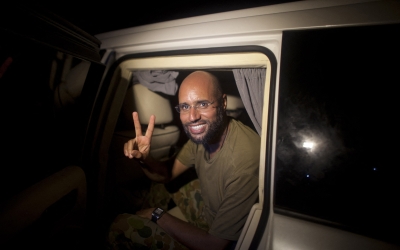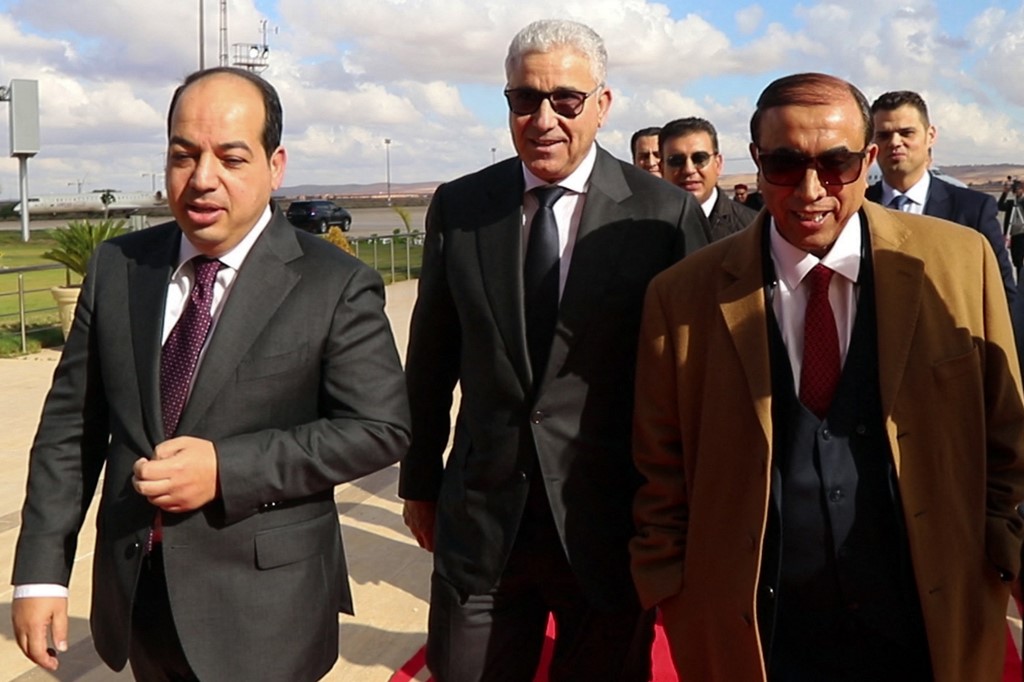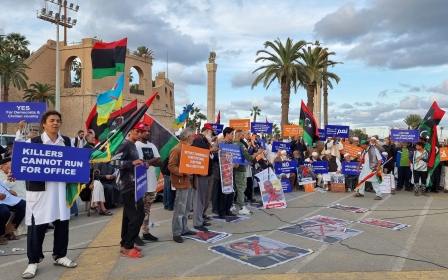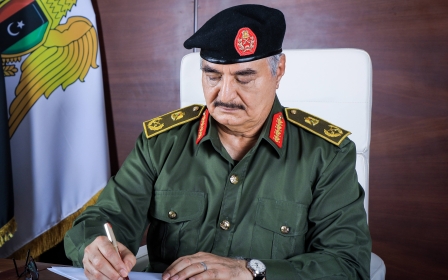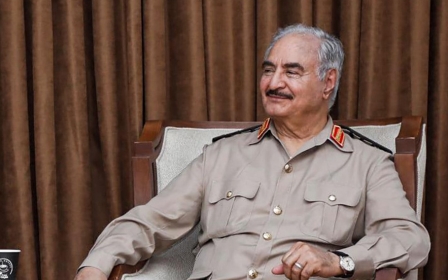Libya: Armed actors jostle for control as election hopes collapse
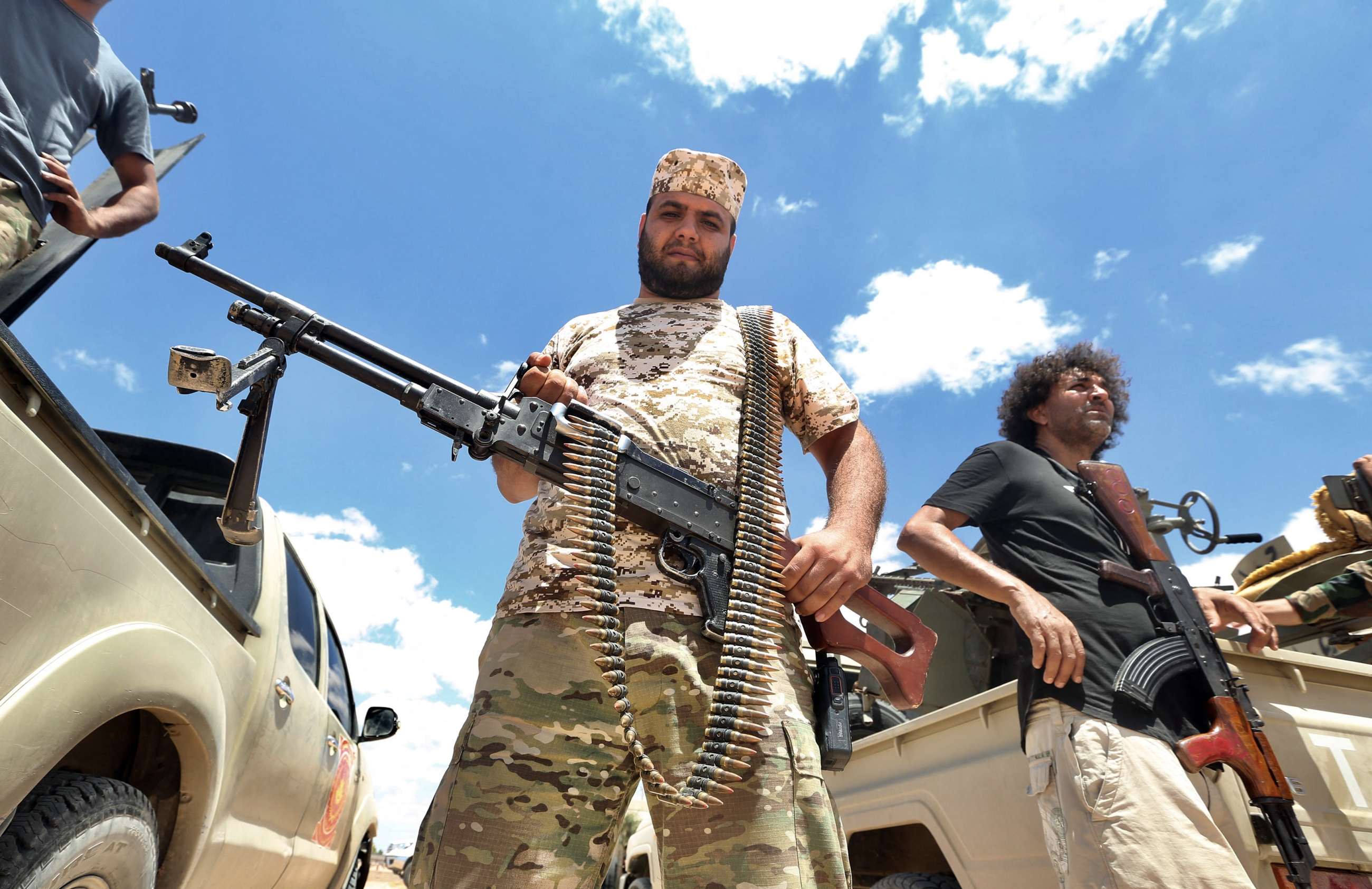
Armed groups were spotted throughout Libya’s capital city of Tripoli early Tuesday morning, as hopes that the country would hold elections scheduled for 24 December appeared to collapse.
Images circulated on social media show tanks and armed vehicles deployed on roads in southern Tripoli and blocking traffic.
Amidst the deployment of military forces, the University of Tripoli and schools in the city’s south suspended classes, according to local news sources.
Movements by armed actors came as some presidential candidates gathered in the coastal city of Benghazi to discuss the escalating situation in the country.
On Monday, the chairman of Libya’s election commission dissolved the committees responsible for carrying out oversight of polling stations and administrating the election process, effectively postponing the vote.
The election has been heralded as a watershed moment for the UN-led peace process which established a ceasefire between rival eastern and western factions in October last year.
World powers had gathered for a summit in Paris in November in an effort to throw their weight behind the UN’s efforts, but Middle East Eye reported how divisions between actors in Libya and their foreign backers have hamstrung the process.
The militia deployments took place while renegade general Khalifa Haftar, who leads Libya’s eastern-based forces and is a potential candidate in the elections, met with the country’s ex-interior minister Fathi Bashagha and former deputy prime minister Ahmed Maiteeq in Benghazi.
'Dbeibeh [the interim prime minister] will try to stay in power for six months or so'
- Jalel Harchaoui, Libya expert
Many observers have pointed to the risks of holding elections in a country where militias still wield power, the electoral framework is unclear, and disputes remain over the qualifications of candidates.
Others have raised concerns that even if elections are held, the divisive nature of the candidates means Libya would likely remain in turmoil for some time.
Along with Haftar, other potential candidates include current Prime Minister Abdul Hamid Dbeibeh, a Gaddafi era construction magnate who initially promised not to run for office; and Saif al-Islam Gaddafi, the son of Libya's former strongman, who critics say is responsible for war crimes during the overthrow of his father.
With elections likely postponed, one of the most pressing issues now will be the fate of Libya’s Government of National Unity, which was established by temporary agreement and tasked with preparing the country for the vote.
"Dbeibeh [the interim prime minister] will try to stay in power for six months or so," Jalel Harchaoui, a Libya expert at the Global Initiative Against Transnational Organized Crime, told Middle East Eye.
The meeting between Haftar and his fellow candidates in Benghazi could indicate new attempts to unseat Dbeibeh now that election results appear to have collapsed, Harchaoui seemed to indicate.
“There is an array of armed groups who have every intention of making that [staying in office] difficult for Dbeiebeh,” he added.
'High' potential for violence
Analysts have said that post-election conflict appears inevitable. Paolo Napolitano, a senior analyst at Dragonfly Intelligence, told MEE earlier this month that "there is almost no foreseeable scenario in which the results of the presidential election will be accepted as legitimate by all parties".
"Any result will almost certainly be disputed by one group or another. Given that results are likely to be contentious, the potential for a return to armed violence is high.”
Signs of tensions have been brewing for weeks. Supporters of Gaddafi clashed with militias in the country’s south early this month, after they blocked a courthouse where Gaddafi was challenging a legal ruling on his eligibility.
Forces loyal to Haftar shut down the country’s biggest oil field this week, forcing the country to suspend crude exports from two ports, with effects that could potentially ripple through energy markets at a time of rising prices.
Middle East Eye delivers independent and unrivalled coverage and analysis of the Middle East, North Africa and beyond. To learn more about republishing this content and the associated fees, please fill out this form. More about MEE can be found here.


